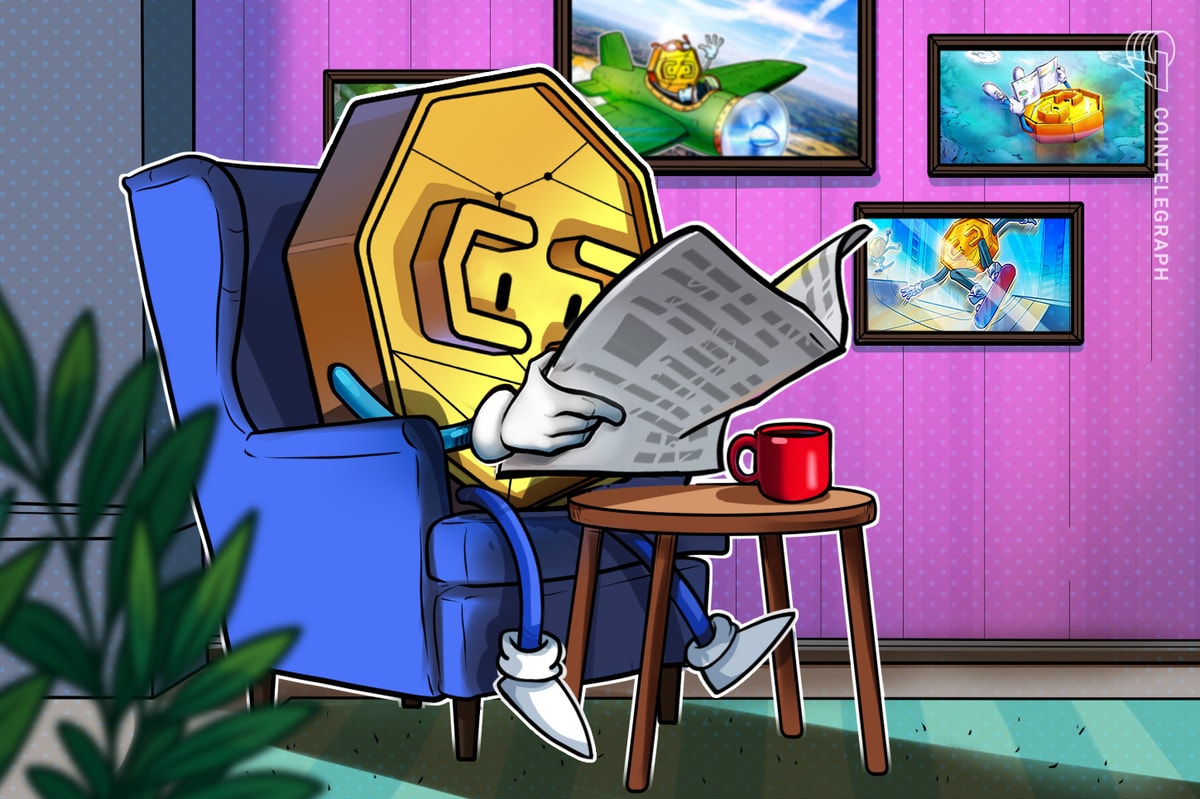Roman Storm, Open Sea, and Ondo Make Headlines
Today in crypto, Tornado Cash developer Roman Storm warns open-source developers of retroactive prosecution, NFT marketplace OpenSea pivoting to a multi-asset exchange. Meanwhile, Ondo Finance is urging the US SEC to delay or reject Nasdaq’s tokenized securities proposal. Roman Storm warns open-source developers of retroactive prosecution Tornado Cash developer Roman Storm warned open source software…
Today in crypto, Tornado Cash developer Roman Storm warns open-source developers of retroactive prosecution, NFT marketplace OpenSea pivoting to a multi-asset exchange. Meanwhile, Ondo Finance is urging the US SEC to delay or reject Nasdaq’s tokenized securities proposal.
Roman Storm warns open-source developers of retroactive prosecution
Tornado Cash developer Roman Storm warned open source software developers, particularly those working on decentralized finance (DeFi) protocols, that they could be retroactively prosecuted by the United States Department of Justice (DOJ).
Storm asked the DeFi developers in a Saturday X post: “How can you be so sure you won’t be charged by the DOJ as a money service business (MSB) for building a non-custodial protocol?”
“If the Southern District of New York (SDNY) can charge a dev for building a non-custodial protocol, who is safe? My case is still ongoing,” he continued.
The verdict in the Roman Storm case has major legal implications for open source software development in the United States and sets a dangerous legal precedent for developers, who are not currently protected from prosecution.
OpenSea rejects pivot from NFTs, says it’s evolving to ‘trade everything’
OpenSea CEO Devin Finzer has rejected claims that the company is pivoting away from non-fungible tokens (NFTs), saying instead that the marketplace is “evolving” into a universal platform to trade every type of onchain asset.
In a Friday post on X, Finzer announced that OpenSea’s October trading volume exceeded $2.6 billion, with over 90% of that amount coming from token trading, calling it the beginning of the platform’s transformation to “trade everything.”
“We’re building the universal interface for the entire onchain economy — tokens, collectibles, culture, digital and physical,” Finzer told Cointelegraph. “The goal is simple: if it exists onchain, you should be able to trade it on OpenSea, seamlessly across any chain, while maintaining complete control of your assets,” he added.
OpenSea was the first major NFT marketplace, launching in 2017 as a platform for buying, selling, and trading various non-fungible tokens. The platform remained the dominant player in the space until early 2023, when it lost momentum due to a combination of the overall NFT market crash and the rise of a major competitor, Blur.
Ondo Finance to SEC: Hold off on Nasdaq’s tokenized securities plan
Ondo Finance urged the US Securities and Exchange Commission (SEC) to delay or reject Nasdaq’s proposal to trade tokenized securities, saying it lacks transparency and could give established market players an unfair edge.
In a Wednesday letter to the regulator, Ondo — a blockchain company that issues tokenized versions of traditional assets — said regulators and investors can’t fairly evaluate Nasdaq’s proposal without public details on how the Depository Trust Company (DTC) will handle blockchain settlements. DTC serves as the main depository for US securities and facilitates their post-trade settlement.
While acknowledging support of Nasdaq’s move toward tokenization, Ondo warned that “Nasdaq’s reference to non-public information implies differential access that deprives other firms of a fair opportunity to comment.”
The company also noted that Nasdaq’s rule cannot take effect until DTC finalizes its system, saying there’s no harm in delaying approval until more features are released. It called on the SEC to prioritize “open collaboration and transparent standards” before making a final decision.
Ondo’s letter responds to Nasdaq’s Sept. 8 filing with the SEC, in which the world’s second-largest stock exchange sought to amend its rules to allow trading in tokenized securities.
Tokenized shares are digital versions of traditional stocks recorded on a blockchain.
If approved, the proposal would let tokenized shares trade alongside traditional ones, with settlements processed through the DTC’s forthcoming system for tokenized securities.
Nasdaq’s proposal was published in the Federal Register on Sept. 22, starting the SEC’s 45-day review period, which runs until early November or late December if extended.

